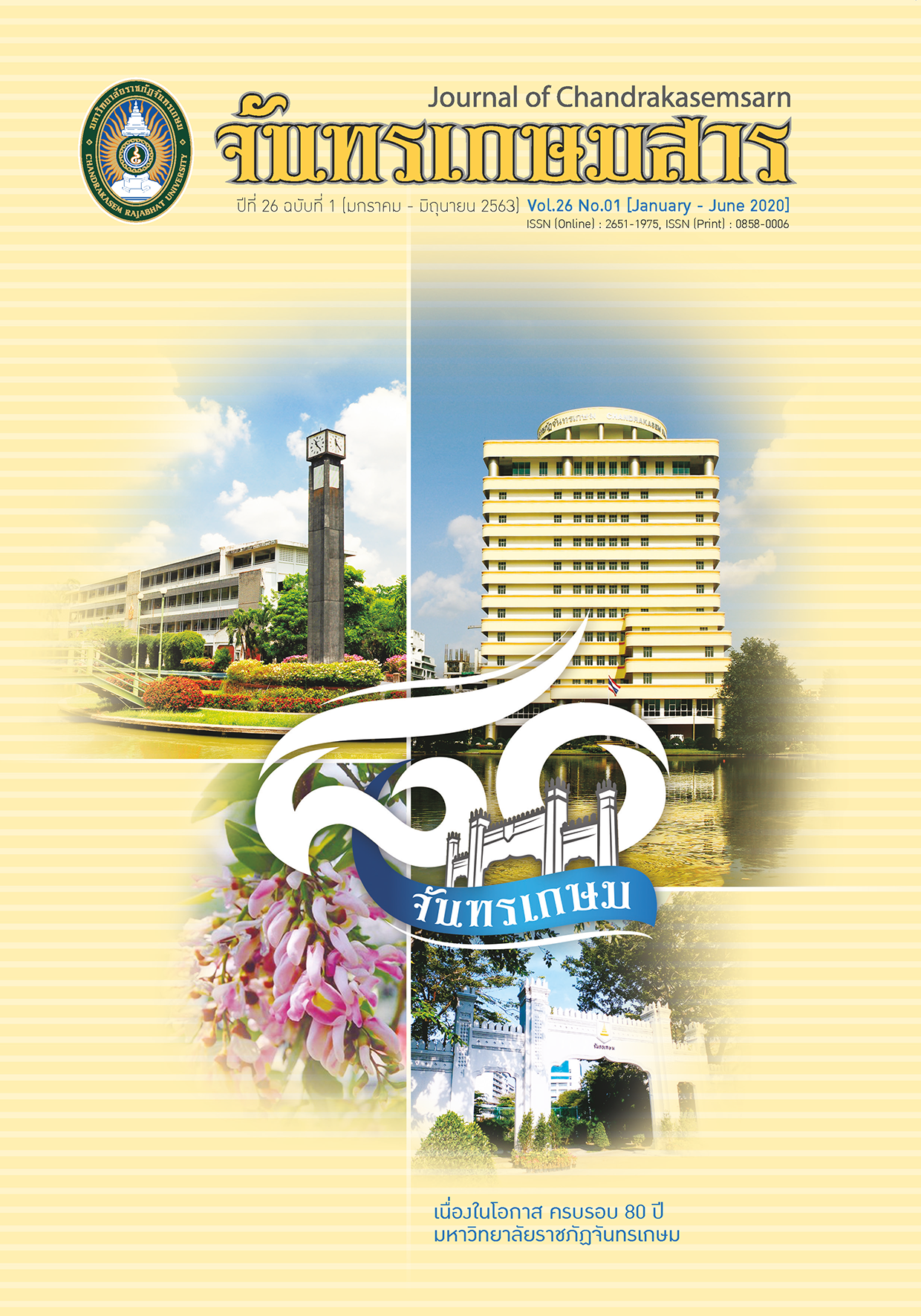ความหลากหลายของแนวคิดการจัดการภาครัฐแนวใหม่กับแนวโน้มการจัดการภาครัฐในอนาคต
คำสำคัญ:
การจัดการภาครัฐ, การจัดการภาครัฐแนวใหม่, การบริการภาครัฐแนวใหม่บทคัดย่อ
แนวคิดการจัดการภาครัฐแนวใหม่มีพัฒนาการมาตั้งแต่ปี 1980 จนถึงปัจจุบัน มี ความหลากหลายในประเด็นต่าง ๆ ทั้งที่มา ความหมาย ขอบข่าย และเนื้อหา ซึ่งเป็นมุมมอง ความคิดจากนักวิชาการหลายท่าน ความหลากหลายดังกล่าวได้สร้างมุมมองใหม่ให้แก่ภาครัฐ และนักวิชาการให้ตระหนักและให้ความสำคัญกับการเปลี่ยนแปลงที่เกิดขึ้น ทำให้รับรู้ว่า การจัดการที่เหมาะสมในศตวรรษที่ 21 นั้น องค์ความรู้ที่สร้างขึ้นมานั้นจำเป็นต้องมีการปรับเปลี่ยน ตามบริบทสภาพแวดล้อมเพื่อประโยชน์สูงสุด การจัดการภาครัฐแนวใหม่ได้ส่งผลต่อหลาย ประเทศในแง่ของการปฏิรูปการบริหารจัดการภาครัฐ โดยมีการนำแนวคิดการจัดการภาครัฐ แนวใหม่มาใช้เพื่อขับเคลื่อนและพัฒนาการบริหารจัดการและระบบราชการให้มีประสิทธิภาพ ด้วยความที่แนวคิดการจัดการภาครัฐแนวใหม่มีความหลากหลายและได้รับ การวิพากษ์วิจารณ์ทั้งในเชิงบวกและเชิงลบ ยังคงมีข้อโต้แย้งที่มองประชาชนเหมือนกับลูกค้า หรือผู้รับบริการ ซึ่งการจัดการภาครัฐไม่เหมือนกับภาคธุรกิจ จึงควรให้ความสำคัญกับความเป็น พลเมือง และควรปรับเปลี่ยนบทบาทจากการกำกับดูแลมาเป็นการให้บริการ ตามแนวคิด การบริการภาครัฐแนวใหม่ นอกจากนี้ยังมีแนวคิดการบริหารบ้านเมืองที่ดี ที่มาช่วยอุดช่องว่าง ที่ยังเป็นปัญหาของการนำแนวคิดการจัดการภาครัฐแนวใหม่มาปรับใช้ ซึ่งหากนำแนวคิด ทั้งสองมาผสมผสานกันและนำมาประยุกต์ใช้ก็จะส่งผลดีต่อประชาชน รวมถึงต้องให้ ความสำคัญกับความยุติธรรมและการกระจายความเท่าเทียมให้เกิดขึ้นด้วย สิ่งที่เรียนรู้ได้จาก แนวคิดนี้ สามารถนำไปพัฒนาเชื่อมโยงสู่แนวคิดใหม่ ๆ ได้ โดยต้องมีการวิเคราะห์และเติมเต็ม ในประเด็นที่ยังมีปัญหาเพื่อให้แนวคิดการจัดการภาครัฐแนวใหม่ประสบความสำเร็จตาม เป้าหมายที่ตั้งไว้คือการนำมาใช้กับการบริหารจัดการภาครัฐต่อไปในอนาคต
Downloads
เอกสารอ้างอิง
อัมพร ธำรงลักษณ์ (บรรณาธิการ). (2553). การบริหารปกครองสาธารณะ (Public Governance) การบริหารรัฐกิจในศตวรรษที่ 21. กรุงเทพฯ: โรงพิมพ์มหาวิทยาลัยธรรมศาสตร์.
Barzelay, M. (2000). The new public management: a bibliographical essay for Latin American (and other) scholars. International Public Management Journal, 3(2), 229-265.
Bernier, L. and Hafsi, T. (2006). The changing nature of public entrepreneurship. In C. Hood (Ed.), Public Administration Review, 66(3), 488-503.
Bowornwathana, B. (2004). Putting new public management to good use: Autonomous, public organizations in Thailand. In C. Pollitt and C. Talbot (Ed.), Unbundled government: A critical analysis of the global trend to agencies, quangos and contractualisation (pp. 247-263). London and New York: Routledge.
Christensen, T and Lægreid, P. (1999). New public management: Design, resistance, or transformation?. Public Productivity and Management Review, 23(2), 169-193.
Denhardt, J. V. and Denhardt, R. B. (2003). The new public service: Serving, not steering. Armonk, NY: M.E. Sharpe.
Denhardt, R. B. (2008). Theories of public organization (5th ed.). Belmont, CA: Thomson-Wadsworth.
Dunleavy, P., Margetts, H., Bastow, S. and Tinkler, J. (2006). New public management is dead. Long live digital-era governance. Journal of Public Administration Research
and Theory, 16(3): 467-494.
Gow, J. and Dufour, C. (2000). Is the new public management a paradigm? Does it matter?. International Review if Administrative Science, 66, 573-597.
Haque, S. M. (2007). Revisiting the new public management. Public Administration Review, 67(2), 179-182.
Hood, C. (1991). A public management for all season?. Public Administration, 69(1), 3-19.
Hughes, O. (2003). Public management and administration. Palrave Macmillan: New York.
Kaboolian, L. (1998). The new public management: Challenging the boundaries of the management vs. administration debate. Public Administration Review, 58(3), 189-193.
Lynn, L. E. (1998). The new public management: How to transform a theme into a legacy. Public Administration Review, 58(3), 231-237.
Mathiasen, D. G. (1996). The new public management and its critics. Paper prepared for the conference on The New Public Management in International Perspective, Institute of Public Finance and Fiscal Law, Switzerland, 11-13 July.
Osborne, D. (2006). The new public governance?. Public Management Review, 8(3), 377-387.
Sahlin-Andersson, K. (2000). National, international and transnational constructions of new public management. Stockholm: SCORE.
Stoker, G. (2006). Public values management: A new narrative for networked governance?. American Review of Public Administration, 36(1), 41-57.
Terry, L. D. (1999). From Greek mythology to the real world of the new public management and democratic governance (Terry Response). Public Administration Review, 59(3), 272-277.
ดาวน์โหลด
เผยแพร่แล้ว
รูปแบบการอ้างอิง
ฉบับ
ประเภทบทความ
สัญญาอนุญาต
บทความที่ได้รับการตีพิมพ์เป็นลิขสิทธิ์ของมหาวิทยาลัยราชภัฏจันทรเกษม
ข้อความที่ปรากฏในบทความแต่ละเรื่องในวารสารวิชาการเล่มนี้เป็นความคิดเห็นส่วนตัวของผู้เขียนแต่ละท่านไม่เกี่ยวข้องกับมหาวิทยาลัยราชภัฎจันทรเกษม และคณาจารย์ท่านอื่นๆในมหาวิทยาลัยฯ แต่อย่างใด ความรับผิดชอบองค์ประกอบทั้งหมดของบทความแต่ละเรื่องเป็นของผู้เขียนแต่ละท่าน หากมีความผิดพลาดใดๆ ผู้เขียนแต่ละท่านจะรับผิดชอบบทความของตนเองแต่ผู้เดียว







